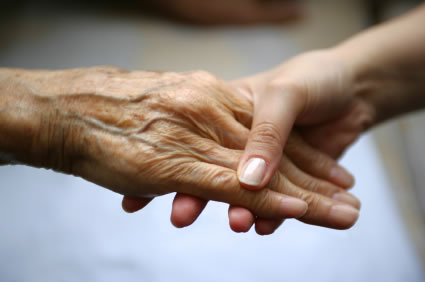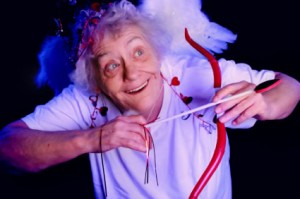Published: April 22, 2011

istockphoto
cientists at the University of Strathclyde in Glasgow are developing a technique based on a new discovery which could pave the way towards detecting Alzheimer’s disease in its earliest stages – and could help to develop urgently-needed treatments.
The technique uses the ratio of detected fluorescence signals to indicate that clusters of peptide associated with the disease are beginning to gather and to have an impact on the brain.
Current techniques are not able to see the peptide joining together until more advanced stages but a research paper from Strathclyde describes an approach which could not only give indications of the condition far sooner than is currently possible but could also screen patients without the need for needles or wires.
Alzheimer’s disease, the most common form of dementia, currently affects around 450,000 people in the UK alone and currently has no cure. [continue reading…]
 Meditation produces powerful pain-relieving effects in the brain, according to new research published in the April 6 edition of the Journal of Neuroscience.
Meditation produces powerful pain-relieving effects in the brain, according to new research published in the April 6 edition of the Journal of Neuroscience.
“This is the first study to show that only a little over an hour of meditation training can dramatically reduce both the experience of pain and pain-related brain activation,” said Fadel Zeidan, Ph.D., lead author of the study and post-doctoral research fellow at Wake Forest Baptist Medical Center.
“We found a big effect – about a 40 percent reduction in pain intensity and a 57 percent reduction in pain unpleasantness. Meditation produced a greater reduction in pain than even morphine or other pain-relieving drugs, which typically reduce pain ratings by about 25 percent.”
For the study, 15 healthy volunteers who had never meditated attended four, 20-minute classes to learn a meditation technique known as focused attention. Focused attention is a form of mindfulness meditation where people are taught to attend to the breath and let go of distracting thoughts and emotions.
Both before and after meditation training, study participants’ brain activity was examined using a special type of imaging — arterial spin labeling magnetic resonance imaging (ASL MRI) — that captures longer duration brain processes, such as meditation, better than a standard MRI scan of brain function. During these scans, a pain-inducing heat device was placed on the participants’ right legs. This device heated a small area of their skin to 120° Fahrenheit, a temperature that most people find painful, over a 5-minute period.
The scans taken after meditation training showed that every participant’s pain ratings were reduced, with decreases ranging from 11 to 93 percent, Zeidan said. [continue reading…]

© istockphoto
A book called You’re Looking Very Well,[*this is not an affliate link] written by Lewis Wolpert, emeritus professor of biology at University College London, suggests that most people were “averagely happy” in their teens and twenties, declining until early middle age as they try to support a family and a career. “But, from the mid-forties, people tend to become ever more cheerful and optimistic, perhaps reaching a maximum in their late seventies or eighties.
A study published by the American National Academy of Sciences, based on a survey of 341,000 people, found that enjoyment of life dwindled throughout early adulthood but began an upward trend in the late forties, and continued to increase until reaching a peak at 85. Read more
Source:TheTelegraph Time
 You win some, you lose some. You get the perfect job—the one your heart is set on. Or you get snubbed. You win the girl (or guy) of your dreams—or you strike out. Such are life’s ups and downs.
You win some, you lose some. You get the perfect job—the one your heart is set on. Or you get snubbed. You win the girl (or guy) of your dreams—or you strike out. Such are life’s ups and downs.
But what if you win and lose at the same time? You land a good job—but not a great one. Or you do get a plum offer—but not the one you wanted?
A study published in an upcoming issue of Psychological Science, a journal of the Association for Psychological Science, says you’ll find a way to be happy anyway. [continue reading…]




